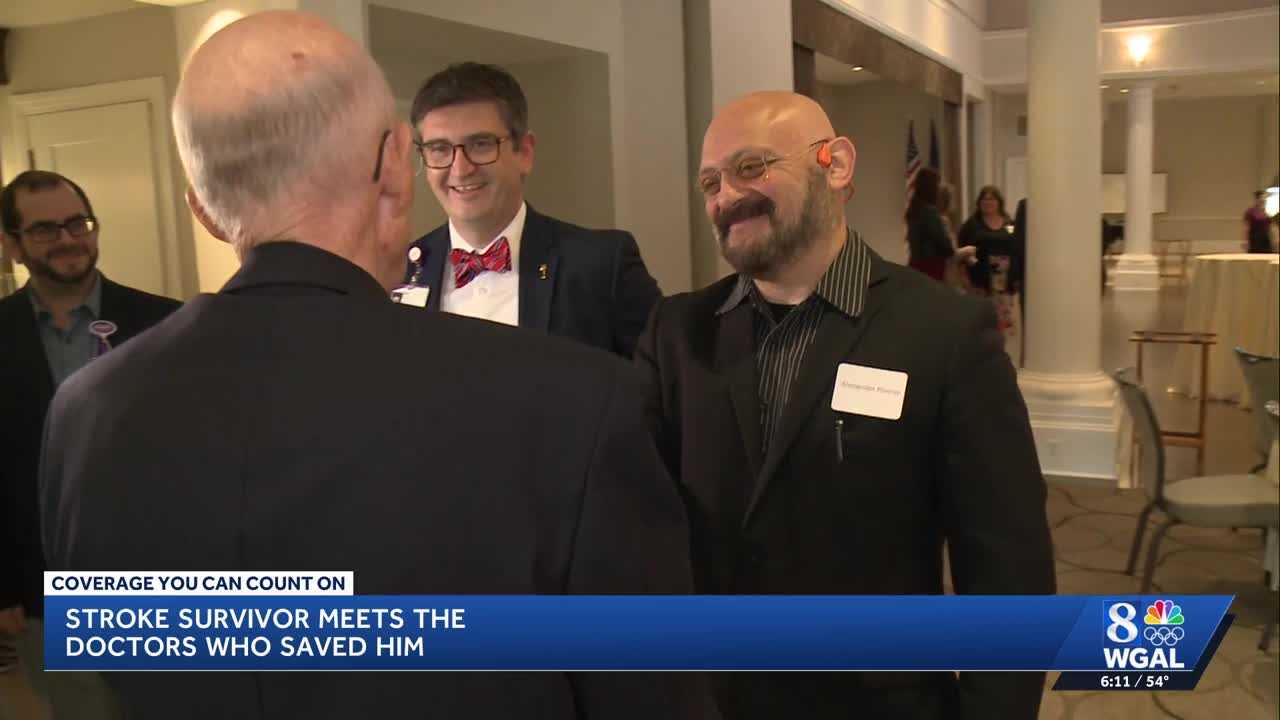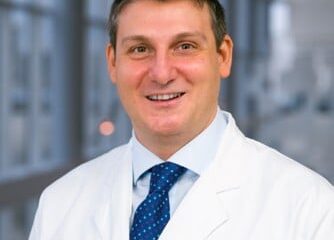Health
Stroke Survivor Ed Hermance Celebrates Recovery at Reunion

CAMP HILL, PA — Just days ahead of World Stroke Day, the UPMC Pinnacle Foundation and UPMC Neurological Institute hosted their inaugural Stroke Survivors Reunion in Pennsylvania. This gathering united dozens of stroke survivors and their families to celebrate resilience and the journey of recovery.
Among the attendees was 80-year-old Ed Hermance, who shared his inspiring recovery story. On May 17, 2023, Hermance experienced a stroke while descending the stairs in his home. His wife and daughter quickly recognized the warning signs—drooping face, slurred speech, and loss of movement on his left side—and promptly called 911.
“I’m going down the stairs from up in the bedrooms when it hit,” Hermance recounted. “My wife held on to me, and my daughter was down at the other end doing some cleaning, and she recognized I had a stroke.”
Medical professionals at UPMC West Shore Hospital later discovered a blood clot in the right side of Hermance’s brain. His doctors suggested that an open-heart surgery he had undergone just a month prior, which included receiving a new aortic valve and pacemaker, may have contributed to the clot’s formation.
“I only remember being in the ambulance going to Harrisburg,” Hermance said. “And then they rolled me onto the operating table, and that’s what I remember.”
Dr. Bart Thaci, a neurosurgeon at UPMC, performed a thrombectomy, a procedure that employs a catheter inserted through the wrist or groin to extract blood clots. “To see a patient later doing great and has no symptoms, and all that could have gone wrong and nothing went wrong,” Thaci noted. “It seems like that day didn’t happen for him.”
Today, Hermance is not only walking and talking again but also driving. He looks forward to attending his granddaughter’s graduation in December—a significant milestone he once thought he might miss. “I am very grateful and thankful for what medicine can do these days. I keep saying, you know, the day I had my stroke, all the pieces to get me to work fell into place,” he reflected.
Dr. Alexander Rovner, a neurologist who evaluated Hermance post-surgery, pointed out that success stories like Hermance’s are becoming more prevalent, although still relatively rare. “The more we spend time on prevention or recognizing the stroke, the easier it would be,” Rovner explained. “The earlier the patients are brought to the hospital, the higher the chance neurologists and neurosurgeons have.”
UPMC doctors emphasize the critical role of Hermance’s family in his recovery and encourage everyone to act quickly if they suspect a stroke. They advocate for the “BE FAST” acronym to identify symptoms: Balance, Eyes, Face, Arms, Speech, and Time. The swift actions of Hermance’s family were pivotal in his recovery, allowing him to return to cherished activities, including trips to the Finger Lakes and attending his granddaughter’s graduation at Michigan State University.
“It’s a miracle that I’m able to do what I want to do, when I want to do it, to be able to enjoy life again,” Hermance said. “And to go out and see Emma at Michigan—that’s the icing on the cake.”
The Stroke Survivors Reunion served not only as a celebration of individual triumphs but also as a reminder of the importance of awareness and rapid response in the face of medical emergencies.
-

 World2 weeks ago
World2 weeks agoMass Production of F-35 Fighter Jet Drives Down Costs
-

 World1 week ago
World1 week agoGlobal Air Forces Ranked by Annual Defense Budgets in 2025
-

 Top Stories2 weeks ago
Top Stories2 weeks agoDirecTV to Launch AI-Driven Ads with User Likenesses in 2026
-

 Science2 weeks ago
Science2 weeks agoTime Crystals Revolutionize Quantum Computing Potential
-

 Top Stories1 week ago
Top Stories1 week agoNew ‘Star Trek: Voyager’ Game Demo Released, Players Test Limits
-

 Entertainment1 week ago
Entertainment1 week agoFreeport Art Gallery Transforms Waste into Creative Masterpieces
-

 Lifestyle1 week ago
Lifestyle1 week agoDiscover Reese Witherspoon’s Chic Dining Room Style for Under $25
-

 World1 week ago
World1 week agoElectrification Challenges Demand Advanced Multiphysics Modeling
-

 Lifestyle1 week ago
Lifestyle1 week agoLia Thomas Honored with ‘Voice of Inspiration’ Award at Dodgers Event
-

 Health1 week ago
Health1 week agoGavin Newsom Critiques Trump’s Health and National Guard Plans
-

 Entertainment1 week ago
Entertainment1 week agoFast & Furious Coaster Hits the Track at Universal Studios
-

 Health1 week ago
Health1 week agoResearchers Uncover New Insights into Cancer Mortality Causes






